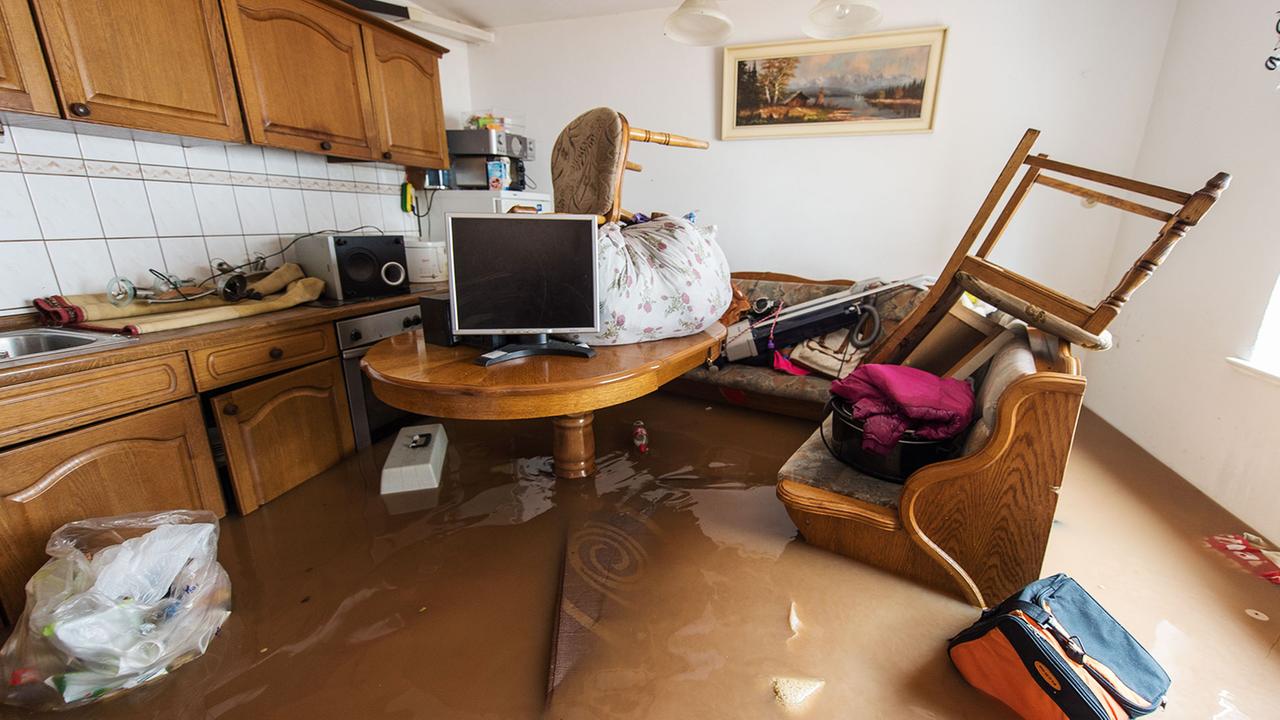faq
Filled cellars, broken cars or collapsed walls – the floods have caused great damage in the flood areas. What should those affected do now? Answers to some important questions.
The floods in Lower Saxony, Saxony-Anhalt and other federal states have caused considerable destruction. Anyone who has suffered damage to their belongings after flooding should pay attention to a few key points.
What is most important if there is damage to the house?
The most important point is your own safety, warn consumer advice centers. Before damage can be documented or even repaired, it is important to get yourself and others to safety and follow the instructions of the fire brigade, police and technical relief organization.
It is important to be extremely careful inside a house affected by flooding: a fall in the flooded basement can have fatal consequences. The accumulated water can also be energized – special care is required.
What are the next steps?
Before cleanup work begins, those affected should document all damage caused by the flood in detail. A smartphone or digital camera can be used to capture damage before further action is taken.
In any case, it is also important to contact your own insurance company as early as possible. Most insurers offer claims hotlines for this purpose.
What obligations do insured persons have?
It should be remembered that insured parties have a duty to minimize damage. Those affected must therefore check which measures are suitable to keep the damage as low as possible. For example, if only a small amount of water has leaked into the cellar, you should start skimming and drying the cellar immediately after documenting the damage – as long as this is safely possible.
Anyone who has natural hazard insurance should also check the contract carefully: in rooms at risk of flooding, backflow protection must usually be installed and their functionality must be ensured. Drain pipes on the insured property must be kept clear and items in the basement area must usually be stored at least twelve centimeters above the ground.
What do household goods and services cover? Building insurance?
Household contents insurance usually covers damage caused by fire, explosion, lightning, vandalism, burglary, (burst) water pipes or storms and hail. For heavy rain, insurance coverage needs to be expanded to include “natural hazards.” If a house or apartment is flooded by overflowing gullies or rivers, the basic household contents insurance often does not apply.
Residential building insurance pays out in the event of storm and hail damage or lightning strikes, but usually does not cover damage caused by water penetrating from outside as a result of storms and natural disasters. Insurance cover in these cases only exists if natural hazard cover is booked.
Which damages are covered? Natural hazard insurance?
Natural hazard insurance also covers so-called natural hazard damage caused by heavy rain, flooding, backwater, but also earthquakes, avalanches or a volcanic eruption. It cannot be taken out individually, but must be booked as a package with household contents and building insurance.
However, according to the industry association of insurers, elementary cover is now often offered automatically. It may be worth taking a closer look at the policy here.
Who needs one? Natural hazard insurance?
Since extreme weather events are increasing and becoming more severe due to the climate crisis, Stiftung Warentest recommends natural hazard insurance for consumers who live in vulnerable locations. Anyone who does not have insurance must hope for future state emergency aid from the federal and state governments.
However, insurance policies and deductibles are often extremely expensive in risk areas because buildings are classified into risk classes. Homeowners can even be denied insurance if the risks are high – for example, if the house is built directly on a body of water.
One is coming Compulsory insurance for Elemental damage?
Politicians such as Lower Saxony’s Prime Minister Stephan Weil have spoken out in favor of compulsory insurance for natural hazards. With the advancing climate crisis, the state cannot guarantee help everywhere. The high costs would be mitigated if compulsory insurance was widely introduced, says Weil. Last year, the Federal Council also asked the federal government to develop compulsory insurance.
The Federal Ministry of Justice divided NDR-Inquiry that compulsory insurance is “not completely ruled out”. However, high premiums that would have to be paid in some regions are “difficult to justify from a socio-political perspective”. The General Association of the German Insurance Industry also warned of significantly rising premiums and called for an overall concept of prevention and climate change adaptation, disaster preparedness and insurance protection.
Federal Justice Minister Marco Buschmann rejected compulsory insurance in December. “At a time of extreme financial strain on private households, we should stay away from anything that makes housing and living in Germany even more expensive,” said the FDP politician last month. However, the federal states have the opportunity to independently introduce compulsory insurance.




